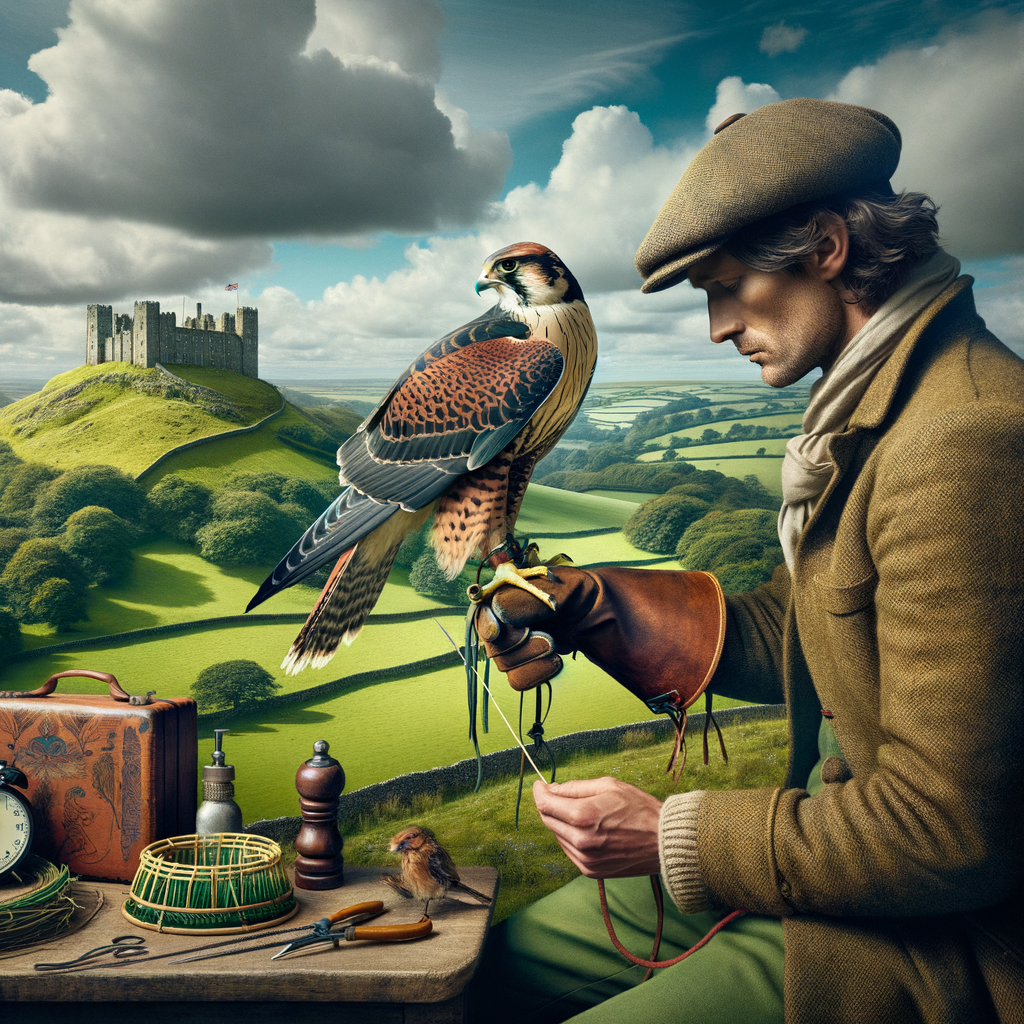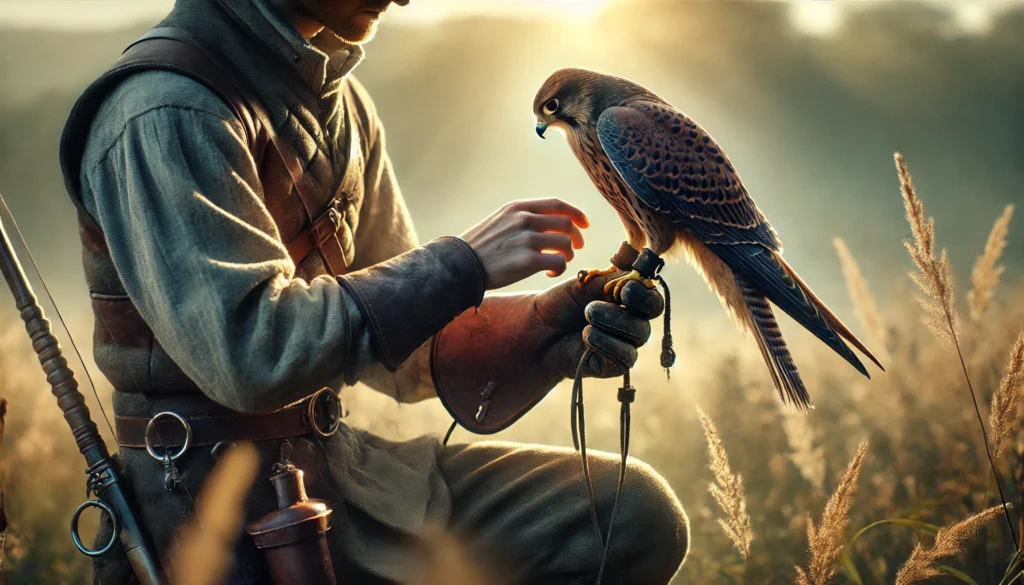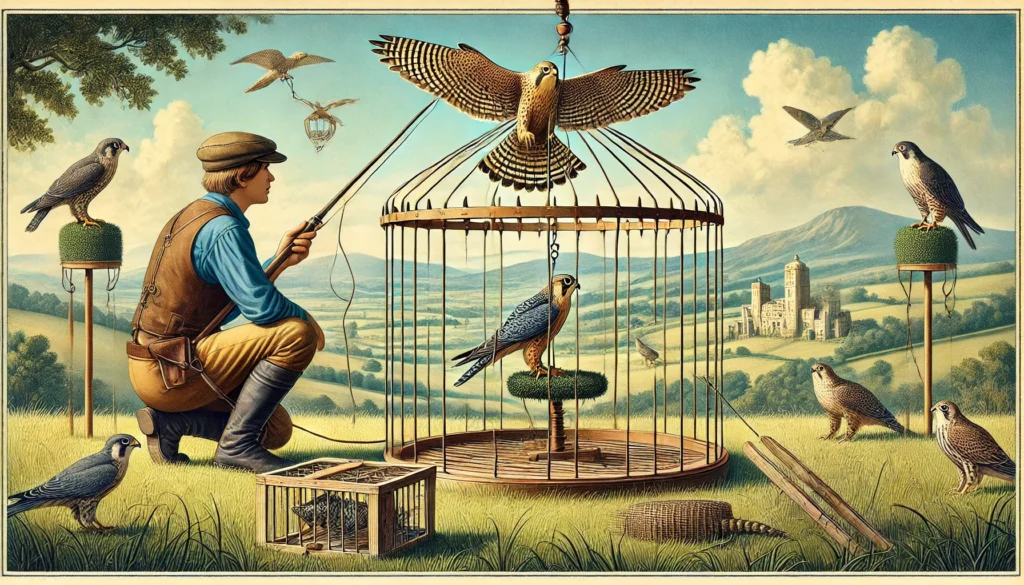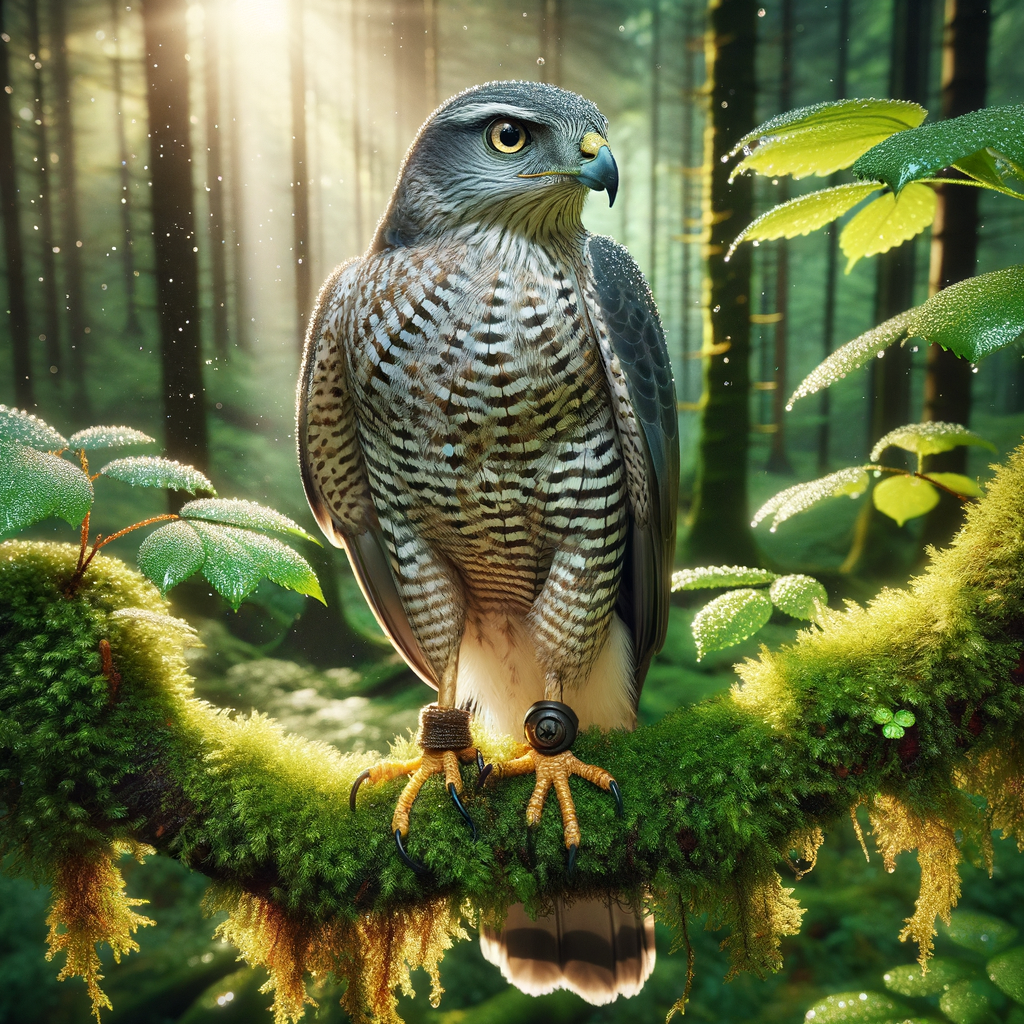Understanding the Role of Falconry in British Culture
- Falconry is an ancient tradition that has been part of British culture for centuries.
- It involves training birds of prey like falcons, hawks, and eagles to hunt small animals.
- Historically, falconry was a sport for kings and nobles, showcasing skill and status.
- The practice requires patience, skill, and a deep understanding of bird behavior.
- Falconers work closely with their birds, building trust and a strong bond.
- Falconry is celebrated in British festivals and demonstrations, keeping the tradition alive.
- Today, falconry is also valued for its role in wildlife conservation and education.
Discovering Falconry in British Culture
Hello, fellow adventurers! Have you ever wondered what it feels like to have a majestic bird of prey soaring through the sky and returning to your arm in a timeless dance of trust and loyalty? Well, that’s exactly what falconry’the ancient art of training falcons and other birds of prey’is all about! But hang on, let’s make this as easy and exciting as an Irish storyteller weaving tales by the fire on a cozy evening.
Falconry is part of British heritage just as much as our charming castles, mythical knights, and enchanting folklore. It’s an incredible tradition that has been embraced for centuries, full of wonder and wisdom. So, why keep reading? Well, if you’ve ever been captivated by the idea of mastering a skill that’s as much about heart and soul as it is about technique, or if you’re just a curious soul looking to learn something truly special, you’re in the right place.
Let’s embark on this journey together with Learn Falconry, where every read is like a stone turned over, revealing more magic and mystery underneath. Keep your eyes wide and your mind open, because just like an Irish tale brimming with unexpected turns, falconry’s story in British culture is one you won’t want to miss!
Ready to become part of this enchanting world? Let’s spread our wings and soar into the adventure!
British Falconry: A Rich Heritage and Tradition
British falconry, also known as “hawking,” has deep roots in the history of the United Kingdom, reaching back to ancient times. It is a fascinating blend of tradition, skill, and passion that has captivated generations. Let’s delve into the intriguing world of falconry in Britain and explore its rich heritage.
The Origins of Falconry in Britain
Falconry in Britain has a storied past. This practice was historically a way for the nobility and royalty to flaunt their status and wealth. Birds of prey like falcons, hawks, and eagles were not just hunting companions but also symbols of power and prestige. In medieval England, the sport reached its zenith, with specialized falconry techniques for different prey, such as game birds and small mammals. The tradition was meticulously passed down through generations, often documented in historical falconry manuals and texts.
For more on the ancient origins of falconry, explore our article on Ancient Origins of Falconry.
Falconry and British Culture
Falconry in the United Kingdom is deeply woven into its cultural fabric. The pageantry and rituals associated with British falconry traditions are still cherished today, from the royal hunts to community events and festivals. Figures like King Richard II and Anne Boleyn are famous for their passionate involvement in falconry, creating a long-lasting legacy that continues to inspire falconers around the world.
The birds used in British falconry traditionally include species such as the Peregrine Falcon, the Gyrfalcon, and the Merlin. Each bird is chosen for its unique hunting skills and adaptability. Learn more about these incredible birds in our article on Species of Falcons.
The Techniques and Equipment of British Falconry
The equipment used in British falconry is specialized and finely crafted, reflecting the importance of the sport in the culture. From handcrafted hoods to intricate gloves and leashes, every piece of falconry gear serves a specific purpose and demonstrates the artistry involved in the sport. Experienced falconers often customize their equipment to suit their personal style and their birds’ needs.
Understanding the tools of the trade is crucial for any aspiring falconer. Learn more about Falconry Equipment and its history.
Training Techniques in British Falconry
British falconry techniques focus on patience, precision, and the development of a strong bond between the bird and the falconer. Traditional methods are often combined with modern training techniques to ensure the well-being and effectiveness of the birds. Training young falcons involves gradual conditioning, positive reinforcement, and acquainting them with various hunting techniques.
Dive deeper into the art of Training a Falcon to understand the step-by-step process involved in this timeless practice.
Legal Aspects and Conservation Efforts
In the United Kingdom, falconry is governed by a set of legal regulations designed to protect both the birds and the practice itself. These laws ensure that falconry is conducted ethically and sustainably, reflecting the nation’s commitment to wildlife conservation. British falconers often participate in breeding programs and reintroduction efforts to help conserve endangered species.
For a detailed look at the Legal Aspects of Falconry and conservation initiatives, visit our website.
The British Falconry Fair 2024
One of the most awaited events for falconry enthusiasts is the British Falconry Fair, which will be held on June 29-30, 2024, at the National Centre for Birds of Prey in Helmsley, North Yorkshire. The fair is the largest of its kind and promises a weekend filled with amazing activities. Here’s what you can look forward to:
Event Highlights:
- Bird Displays: Get up close with various birds of prey, such as Burrowing Owls, Steller’s Sea Eagles, and Griffon Vultures.
- Flying Demonstrations: Watch invited falconers showcase the skill and beauty of these incredible birds.
- Trade Stands: Explore and purchase quality falconry equipment.
For those planning to stay for the weekend, Helmsley offers a range of accommodations, including hotels, B&Bs, and basic camping areas.
Falconry Practices and Community
Falconry, the art of training and flying birds of prey, has been practiced for over 4,000 years. Modern falconry focuses not only on the sport itself but also on safeguarding falcons, quarry, and their habitats. Here are some interesting insights into the practice:
Practices:
- Training and Flying: Training involves considerable skill and experience. Birds are trained to fly and hunt in their natural environments.
- Conservation: Falconers often play a crucial role in conserving bird species and their habitats.
Community:
- British Falconers’ Club: With around 900 members, this is the largest falconry club in the UK. The club supports excellence in hawk management and offers various benefits, such as insurance and social events.
Falconry Licenses and Accessibility
In the UK, anyone can practice falconry without a license, making it accessible to many. For those interested in trying their hand at falconry, there are numerous opportunities to attend workshops and experience life as a falconer for a day.
Conservation and Regulation
Falconry is not just a sport but also a way of life that involves a deep commitment to conservation:
Regulations:
- Licenses: The UK government issues licenses for falconry, allowing the hunting of wild animals using trained birds of prey. These licenses are free and regulated by Natural England.
Conservation Efforts:
- Population Monitoring: Groups like the Scottish Raptor Study Group monitor bird populations and work to prevent illegal activities.
- Quarry Species: There are 25 quarry species for falconry, with concerns raised about some of the high conservation concern species.
Notable Falconry Events
In addition to the British Falconry Fair, other events in 2024 include:
- Hever Castle Jousting & Falconry Event: On August 10, 2024, Hever Castle will host BSL-interpreted falconry displays, ensuring accessibility for visitors with hearing impairments.
Falconry Equipment
Visitors to falconry events can expect to see and handle a range of high-quality falconry equipment. Exhibitors at the British Falconry Fair will showcase everything from gloves and hoods to perches and lures.
The Fascinating World of British Falconry
Falconry is a cherished tradition in Britain, bringing together history, sport, and conservation. Whether you’re a seasoned falconer or a curious newcomer, the events and practices in 2024 offer plenty of opportunities to immerse yourself in this incredible world.
Embracing the Tradition of Falconry in British Culture
Falconry is more than just a hobby; it’s a deeply rooted tradition in British culture, blending art, skill, and a profound connection with nature. The British Falconry Fair, happening on June 29-30, 2024, at the National Centre for Birds of Prey, offers a fantastic opportunity to witness this ancient practice live. From awe-inspiring bird displays to engaging flying demonstrations by expert falconers, this event has something for everyone. Whether you’re interested in meeting impressive birds like the Bald Eagle and Harris Hawk or exploring high-quality falconry equipment, the fair promises an unforgettable experience. Adding to this, the BSL Interpreted Jousting Tournament at Hever Castle on August 10, 2024, ensures everyone can enjoy the fascinating falconry displays.
With approximately 25,000 falconers in the UK, the community is thriving, keeping the legacy alive through mentoring and workshops. Falconry is not only an important cultural symbol but also a commitment to conservation and the ethical treatment of birds of prey.
As we look forward to these exciting events and continue to cherish this historic practice, it’s clear that falconry remains a vital part of British heritage, skillfully bridging the gap between past and present.



